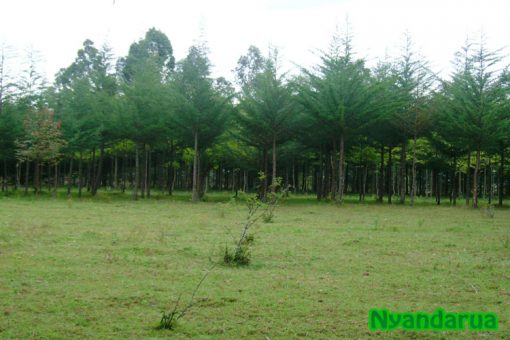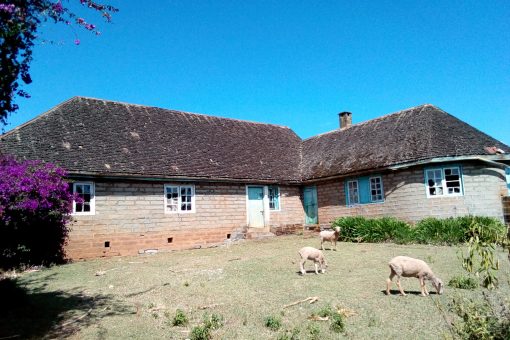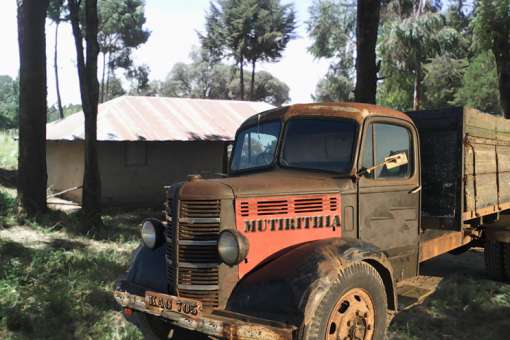After the newspapers were read and done with, here are some of the other vital jobs they were used for:
Pot holder. Old newspapers were like hand mittens for our kitchen. Our mother used them to protect her hands while handling a hot sufuria from the fire.
Wrapping Meat: Butchers bought old newspapers, which they used for wrapping meat for customers. I still remember unwrapping meat and writings from the newspaper ink had transferred to the meat. I can only imagine the chemicals from the ink contaminating the meat, but we never thought much about it back then. We ate the meat and the ink and we turned out just fine. Or did we? Maybe I can start using that as an excuse for all my shortcomings. Can I? I also think about the hygiene part of it. The newspaper had been handled by many unwashed hands during printing, packing, delivery, selling and finally reading it spread out on a chair, grass, bed or table that had not been cleaned recently. The newspaper is then tossed onto a pile with previous papers where they gathers dust until the pile is high enough to be sold to the butchers. We show up at the butchery and our precious Gichiri or Huutiro is wrapped tightly in those same newspapers. Well, we ate the meat and we are still here.
Wall Paper: Remember the interior Decor I told you about for the young mens’ Kiumbu. They put newspapers all over the wall to cover the mud plaster, giving their Kiumbu an improvised “wallpaper”. The ones my brothers put up in their Kiumbu have headlines from the 1970s when Jomo was still president and the tallest building in Nairobi was KICC. The newpapers have yellowed with age but they are still holding strong. Visiting their Kiumbu is like going to the National Archives.
Cleaner: Newspapers were very good for cleaning, especially glass. Every home had a hurricane lamp (tawa wa rutambi or tawa wa ngirathi) for lighting purposes. Over time, the glass was darkened by the smoke from the wick (rutambi). Newspapers cleaned off that soot very effectively, leaving the glass clean and clear without any streaks.
Toilet Paper: I had never heard of toilet paper let alone seen a roll of toilet paper, and I did not know of any family in OlKalou that used toilet paper. Some families grew Maigoya, a special plant with very soft leaves, ideal for wiping. Those who did not have Maigoya, newspapers were a requirement. To soften the paper, we rubbed it vigorously with both hands (kurigitha), the same rubbing motion we applied when washing clothes (gutanduka), the friction softened the newspaper considerably. The newspapers must have left good amounts of printing ink on our behinds, but who is checking.
Kiraiku: This was the local homemade cigarette. There were traders in the market who sold tobacco products, the most famous one was Waititu wa Mbaki. They sold the fine tobacco that people sniffed through the nose, or chewed under their tongues. Nasty, but who am I to judge. There was also the coarsely crushed tobacco leaves which the locals called Kiraiku or Njiri. This was for smoking. After buying the Kiraiku, it was up to the consumer to find some paper to roll it in so it can be smoked like a cigarette. Newspapers were the best quality of paper, soft, easy to roll and it burned evenly (You would think I smoked Kiraiku) Anyhow, Kiraiku smokers were not your regular newspaper readers, so, they were forever hunting for sheets of newspaper from anybody who had them.
The workers in our home were usually Kiraiku smokers, yet they did not read or own newspapers. Remember those newspapers that covered the entire mud walls of the boys Kiumbu? Our workers knew about them too, making the Kiumbu a goldmine for their newspaper supply. Some workers befriended the boys, just to have access to the Kiumbu without raising suspicion. When nobody was looking, they tore off a square from a corner of a newspaper sheet, just enough for one Kiraiku. The boys did notice at some point and such a “guest” was banned from entering their Maskan, because of interfering with their interior decor.



